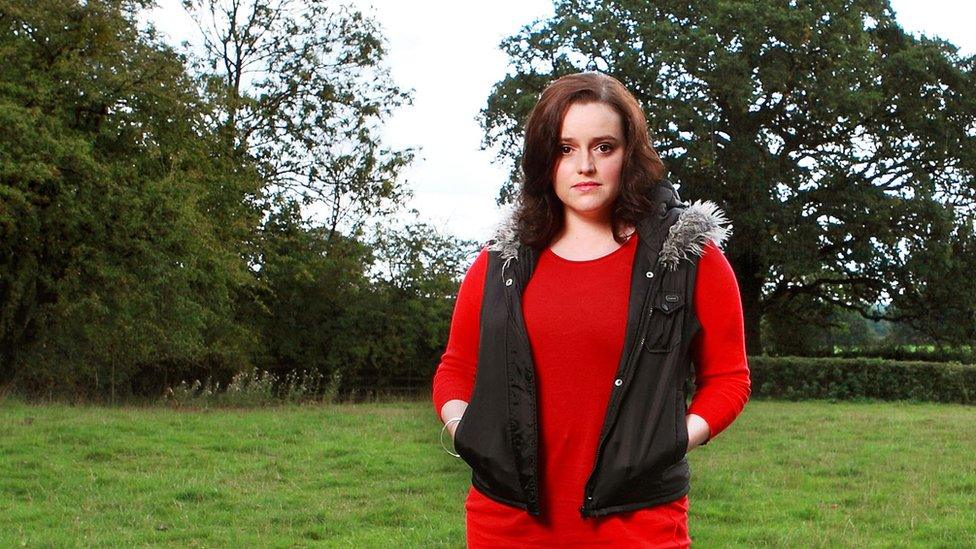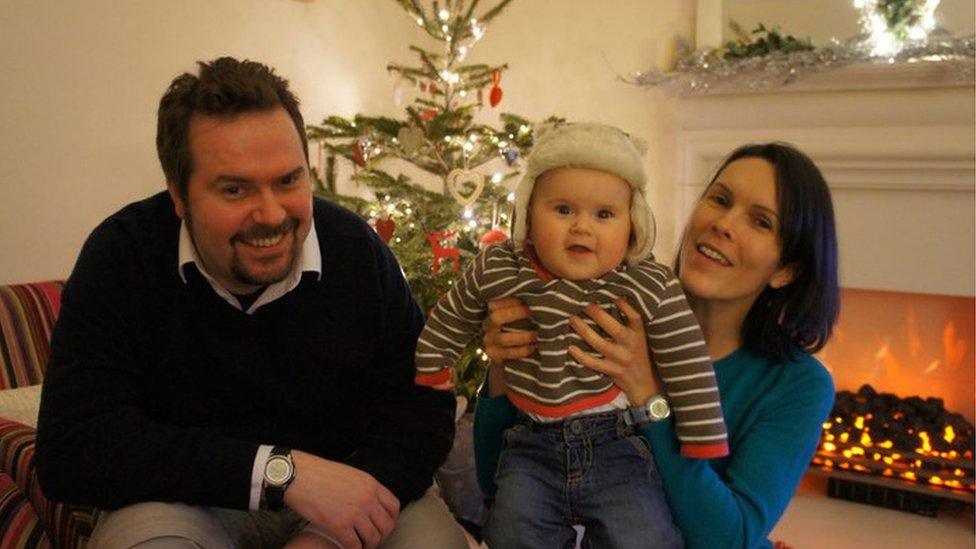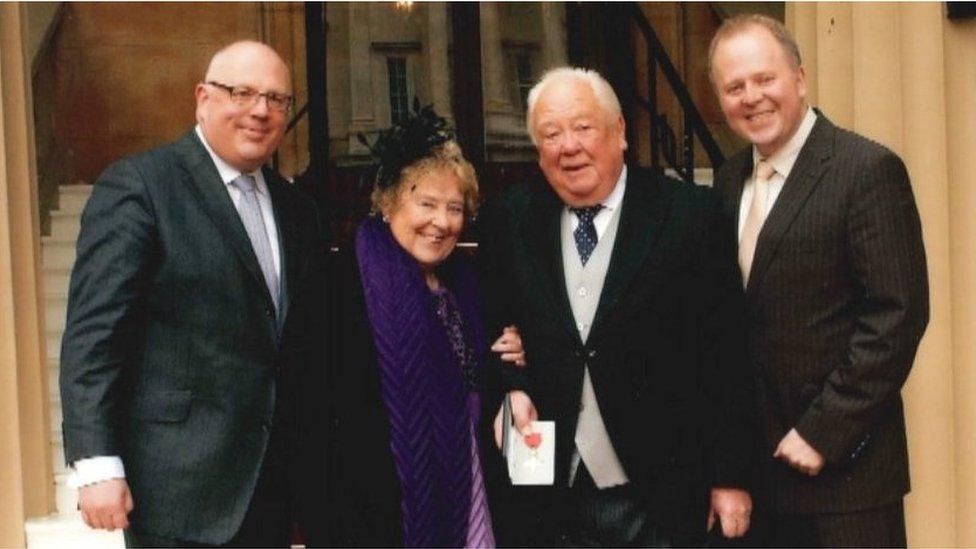Sepsis death in The Archers all too familiar, says charity
- Published

Nic Grundy is married to Will and has three young children in The Archers
The death of a young mother from sepsis in BBC radio drama The Archers on Friday has prompted an outpouring of shock and emotion.
The character of Nic Grundy developed sepsis, or blood poisoning, after accidentally cutting her arm on a rusty nail and died only days later.
She leaves behind a husband and three children (plus a stepson) in the long-running radio soap.
The charity UK Sepsis Trust worked with scriptwriters in the weeks leading up to Nic's death, saying her story was "all too familiar".
"Thousands of real people in the UK develop sepsis in exactly the same way each year and have their lives torn apart by the condition," said chief executive Dr Ron Daniels.
"It's fantastic that The Archers is raising the profile of a condition which affects so many people, and yet is so poorly recognised."
Listeners registered their feelings on Twitter about the storyline.
Allow X content?
This article contains content provided by X. We ask for your permission before anything is loaded, as they may be using cookies and other technologies. You may want to read X’s cookie policy, external and privacy policy, external before accepting. To view this content choose ‘accept and continue’.
Allow X content?
This article contains content provided by X. We ask for your permission before anything is loaded, as they may be using cookies and other technologies. You may want to read X’s cookie policy, external and privacy policy, external before accepting. To view this content choose ‘accept and continue’.
And for some it brought back memories.
Allow X content?
This article contains content provided by X. We ask for your permission before anything is loaded, as they may be using cookies and other technologies. You may want to read X’s cookie policy, external and privacy policy, external before accepting. To view this content choose ‘accept and continue’.
Allow X content?
This article contains content provided by X. We ask for your permission before anything is loaded, as they may be using cookies and other technologies. You may want to read X’s cookie policy, external and privacy policy, external before accepting. To view this content choose ‘accept and continue’.
Sepsis kills 44,000 people every year in the UK - more than bowel, breast and prostate cancer put together, the UK Sepsis Trust says.
It says better awareness could save 14,000 of those lives annually.
Sepsis can happen as a result of any infection, from something as simple as a contaminated cut or scrape to urinary infections and lung infections.
What makes it life-threatening is the body's over-reaction to an infection which has spread quickly - it then attacks its own organs and tissues causing them to stop working.
If it is caught early, it can be treated but sepsis is often initially mistaken for flu or a chest infection.
Last year, a BBC article called it the biggest killer you may not know.

What are the symptoms?
There are six symptoms to be aware of:
slurred speech or confusion
extreme shivering or muscle pain
passing no urine in a day
severe breathlessness
feeling like you might die
skin mottled or discoloured
Symptoms in young children include:
looks mottled, bluish or pale
very lethargic or difficult to wake
abnormally cold to touch
breathing very fast
a rash that does not fade when you press it
a seizure or convulsion
What to do - call 999 and just ask: could it be sepsis?

The Archers is not the only drama which has featured sepsis - Call the Midwife's Nurse Barbara was rushed to hospital at the end of the last episode with a suspected case of the disease.
Dr Daniels said there had been progress in the fight against sepsis but there was more that could be done.
"Tackling sepsis effectively requires investment in a more substantial public health awareness campaign and a sepsis registry to collect reliable data.
"It is these measures that will make a difference for the 250,000 people who are harmed by sepsis every year in the UK."
- Published5 February 2018

- Published11 September 2017
